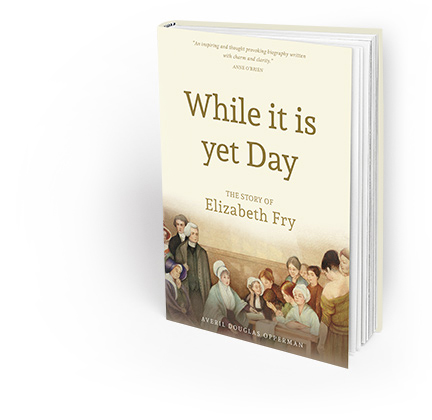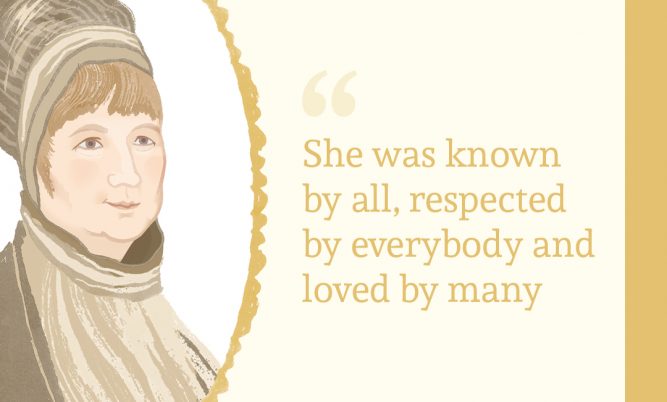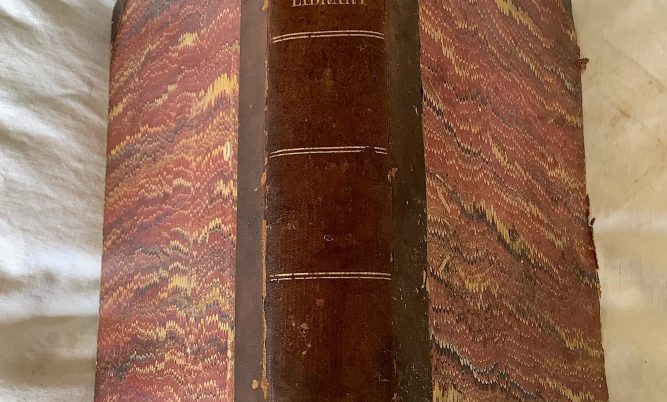People often ask me why I chose to write about Elizabeth Fry and how long it took me. I grew up being aware of her as I suspect most children are in Quaker households. She was a shadowy heroine in the background of my life.
Like her, I was shy, afraid of the dark, not as pretty as my sister, uncomfortable at social gatherings. It was comforting to know that someone else shared these fears and childhood inadequacies. As I matured I began to recognise the enormity of her achievements particularly as a woman in her period of history.
I read various books about her but none had the same lasting impression on me as Janet Whitney’s book which I had been given as a child by my father. It was quite a heavy read and I was a slow reader but something about Janet’s interpretation of Elizabeth always stayed with me.
Much that is written about Elizabeth Fry comes from extracts from her diaries and letters many of which were compiled into two hefty volumes by her daughters Katherine Fry and Rachel Cresswell not long after her death. As an elderly woman she recognised her fame and was adamant that information about her should be freely available to anyone who wanted it. But there are many additional sources and other peoples’ diaries and recollections of her were vital because Elizabeth rarely wrote about her own achievements or successes.
Perhaps it was the advent of Facebook and the gradual world-wide obsession with social media, and self, that brought her back to mind. What would Elizabeth Fry think of all this? Would she embrace all that is good about it? Would she be shocked by the endless selfies and egotism?
I turned once again to Janet’s 1937 book about this selfless woman and wondered if there was a way to edit it for 21st century publication. I wanted to re-write it as she might have been asked to do today. Working long and hard whenever I had any free time over the next couple of years, I produced a draft. I checked, and re-checked every fact and date in her book for accuracy – search tools have improved dramatically in the 80 years since she started her research.
I probably wanted too much: to keep Janet’s voice alive, to appeal to a modern readership beyond the Quaker faith, and to attract the young. I ended up encapsulating Janet’s book within a modern casing which posed a dilemma: was it fair to put Janet’s name to the revamped work? Would I be able to create renewed interest in Elizabeth Fry, my primary aim, using Janet’s name when, like me, she was unknown particularly outside the relatively confined Quaker world? At least I could step right out of my comfort zone and promote the book and the work of Elizabeth Fry.
I spoke to a friend in London who specialises in literary copyright. We discussed it at length and I wondered if I could buy the rights to Janet’s book. He asked me why Janet’s book was so important to me; would I not write a completely new biography? I explained that in some strange way I felt that would be disloyal to Janet who had worked so hard on her book and whose view of Elizabeth had so deeply influenced mine. He read and enjoyed my draft but stressed the need to carefully research Janet’s literary estate before taking it any further.
This I did with some surprising results.
Tagged with: Elizabeth Fry • Finding Janet • inspiration • Janet Whitney • writing



